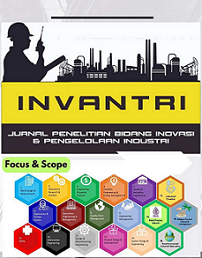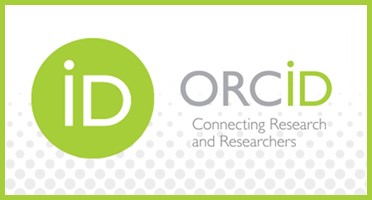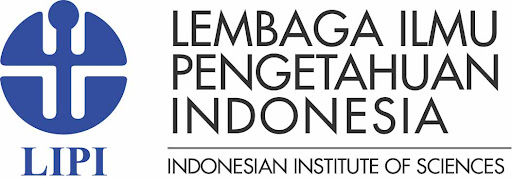Analisis Potensi Kecelakaan Kerja Dengan Metode Hazard Identification And Risk Assessment (HIRA) Pada PT Hilon Sumatera
Analysis of Potential Work Accidents with the Hazard Identification And Risk Assessment (HIRA) Method At PT Hilon Sumatra
Keywords:
Occupational Health and Safety, HIRA, Work AccidentsAbstract
Textile construction methods such as reinforcing floors using fiber reinforced concrete (pillow filling materials), crack panels (cotton blankets), high density covers (mortality materials) and geotextiles have been developed. e PT Hilon Sumatra has not met the safety standards. in the workplace and may be subordinate to them. The purpose of this study is to analyze the risks and causes of occupational accidents. The method used in the study is the HIRA (risk and action) method. The HIRA method is used to identify possible risks and provides an assessment of risks based on the level of risk and severity of the problem. Based on the results of the study it was concluded: The results of the study show that in the final stage there is a very high risk in the tube part of the color up to 14 strengths, at the levels risk in the middle risk (M) of 12% . Risk (H) 44% and high risk (E) 44%. Hazard information includes safety information, K3 promotion, K3 training, emergency models, posters, banners, safety letters and safety signs. Currently, the risk management methods that have been introduced include control, the use of ADP and the use of ergonomic work equipment.
Downloads
References
Alfidyani, K. S., Lestantyo, D. and Wahyuni, I. (2020) „Hubungan Pelatihan K3, Penggunaan APD, Pemasangan Safety Sign dan Penerapan SOP dengan Terjadinya Risiko Kecelakaan Kerja (Studi Pada Industri Garmen Kota Semarang)‟, Jurnal Kesehatan Masyarakat e-Journal, 8(4), pp. 478–484.
Bachri, B. S. (2010) „Meyakinkan Validitas Data Melalui Triangulasi Pada Penelitian Kualitatif‟, Teknologi Pendidikan, 10, pp. 46–62.
Budi, S. (2015) „Perspektif Kepemimpinan Lurah Terhadap Kinerja Pegawai‟, Jurnal Ilmu Sosial dan Ilmu Politik Universitas Tribhuwana Tunggadewi, 4(1), p. 42370.
Di, H., Sinar, P. T. and Djaja, P. (2014) „Identifikasi Bahaya Kecelakaan Unit Spinning I Menggunakan Metode Hirarc Di Pt. Sinar Pantja Djaja‟, Unnes Journal of Public Health, 3(1), pp. 1–9. doi: 10.15294/ujph.v3i1.3162.Disnakertrans.Availableat:https://humas.jatengprov.go.id/detail_berita_gubernur?id=2133.
Dr. F. A. Gunawan, D. W. (2015) Risk Based Behavioral Safety Membangun Kebersamaan Untuk Mewujudkan Keunggulan Operasi. Jakarta: PT Gramedia Pustaka.
Ekasari, L. E. (2017) „Analisis Faktor Yang Memengaruhi Kecelakaan Kerja Pada Pengoperasian Container Crane Di Pt X Surabaya Tahun 2013–2015‟, The Indonesian Journal of Occupational Safety and Health, 6(1), p. 124. doi: 10.20473/ijosh.v6i1.2017.124-133.
Hakim, F. L. (2018) „Analisis Resiko Kecelakaan Kerja Pada Produksi Linggis Dengan Metode Failure Method And Effect (Fmea) (Studi Kasus di UD Tanjung Abadi Kabupaten Jabang)‟ Monopoli Dan Persaingan Usaha Tidak Sehat Pada Perdagangan Produk Air Minum Dalam Kemasan, 1(3), pp. 1–56.
Hidayatullah, D. (2018) „Bab Ii Landasan Teori‟, Journal of Chemical Information and Modeling, 53(9), pp. 8–24.
Kemnaker. Available at: https://kemnaker.go.id/news/detail/menaker-jadikan-k3- sebagai-prioritas-dalam-bekerja (Accessed: 25 March 2021).
Moleong, L. J. (2018) Metodologi penelitian kualitatif / penulis, Prof. DR. Lexy J. Moleong, M.A. Edisi revi. Bandung : PT Remaja Rosdakarya, 2018.
Munang, A., Faisal, R. M. and Mansur, A. (2018) „Manajemen risiko keselamatan dan kesehatan kerja (k3) proyek pembangunan jalur ganda kereta API‟, Applied Industrial …, 02(01).
Notoatmodjo S. (2012) Promosi Kesehatan dan Perilaku Kesehatan. Jakarta: PT Rineka Cipta.
Noviyanti, A. (2020) „Higeia Journal Of Public Health Penerapan Hazard Identification Risk Assessment and Risk Control pada Area Proses‟, 4(Special 1), pp. 136–146.
Ramli, Soehatman (2010) Pedoman Praktis Manajemen Risiko dalam Prespektif K3. Jakarta: Dian Rakyat.
Sahab, S. (1997) Manajemen Keselamatan Kerja.
Sugiyono (2007) Statistik untuk Penelitian. Bandung: ALFABETA.
Sukendra, D. M. and Syafriati, S. Y. (2019) „Higeia Journal of Public Health‟, Higeia Journal of Public Health Research and Development, 3(3), pp. 504–512.
Tagueha, W. P., Mangare, J. B. and Tj. Arsjad, T. (2018) „Manajemen Resiko Keselamatan dan kesehatan Kerja (K3) Pada Proyek Kontruksi (Studi Kasus: Pembangunan Gedung Laboratorium Fakultas Teknik Unsrat)‟, Sipil Statik, 6(11), pp. 907–916.
Tarwaka (2017) Manajemen Dan Implementasi K3 di Tempat kerja. Available at: Keselamatan dan kesehatan kerja manajemen dan implementasi%0AK3 di tempat kerja (Ed. Ke-2).

Additional Files
Published
How to Cite
Issue
Section
License
Copyright (c) 2025 Jurnal Penelitian Bidang Inovasi & Pengelolaan Industri

This work is licensed under a Creative Commons Attribution-NonCommercial-NoDerivatives 4.0 International License.















